The Australian Bureau of Statistics’ (ABS) September quarter national accounts showed that the nation’s gross domestic product (GDP) declined for three consecutive quarters in per capita terms, down 0.3% year on year:
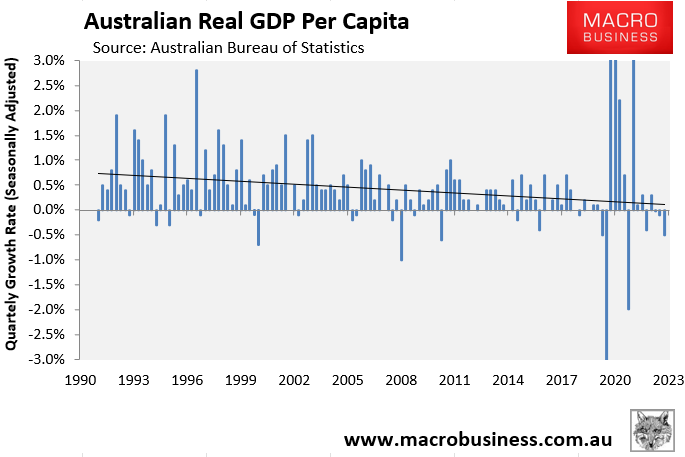
This 0.3% annual decline in per capita GDP was driven by a 1.9% fall in real per capita household consumption:
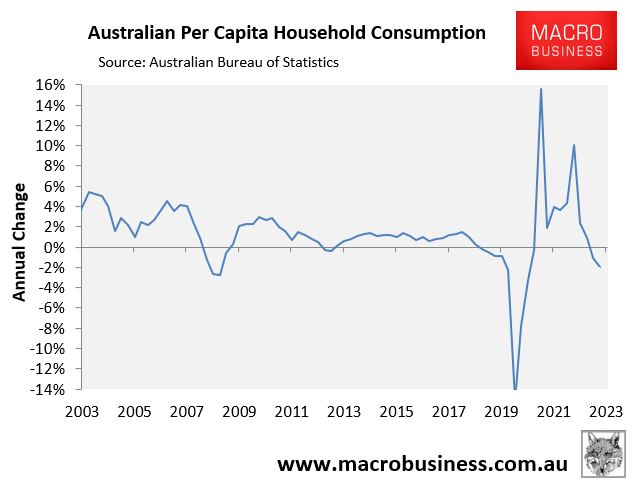
Economists polled by The AFR forecast that Australia’s per capita recession would continue in 2024, with domestic economic growth fall to 1% by mid-2024 before recovering to 2.1% in 2025.
This would imply that Australia’s per capita recession would last until mid-2024, given the nation’s population is expected to grow by more than 2% over the same period.
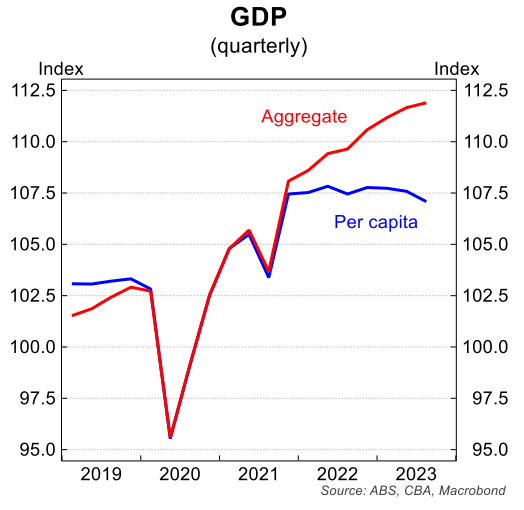
This extreme 2.4% population growth meant that the overall economic pie continued to grow slowly in the year to September, while the typical Australian’s slice of the economic pie shrunk.
On Friday, the ABS released its monthly household spending indicator, which according to Justin Fabo at Antipodean Macro points to lower household consumption and GDP growth over the December quarter:
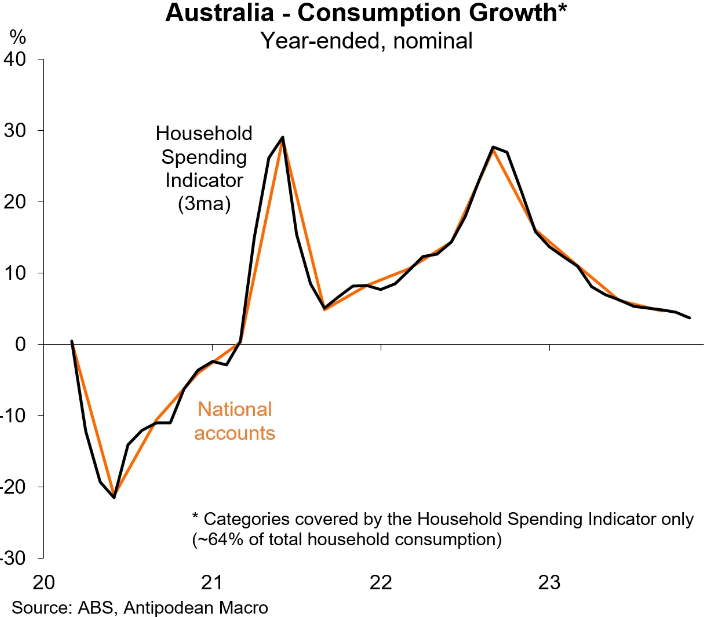
Not surprisingly, the decline in household consumption spending has been driven by discretionary items:
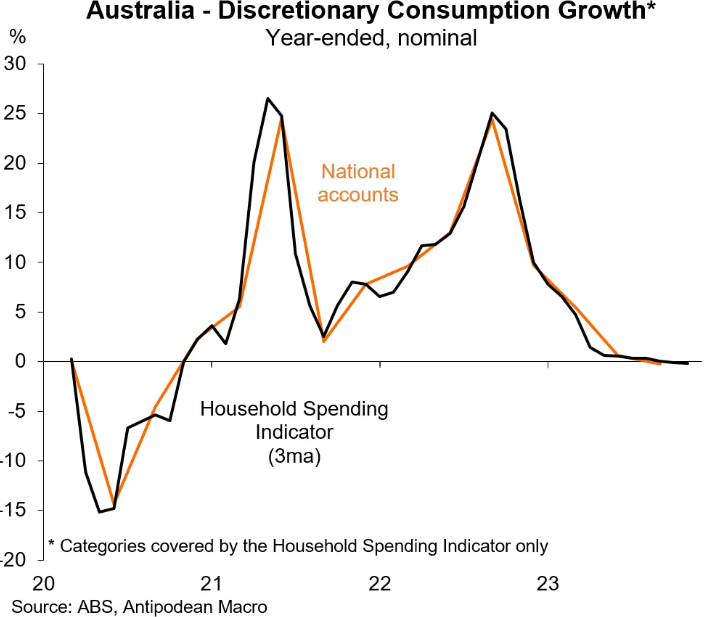
So, while Australia will likely avoid a ‘technical recession’ in 2024 because of historically high population growth (immigration), it will continue to feel like a recession for Australian households.
This comes after they already experienced the greatest fall in living standards on record last year, with real per capita household disposable income falling by 6% to around 2011 levels in the year to September, effectively wiping off 12 years of gains:
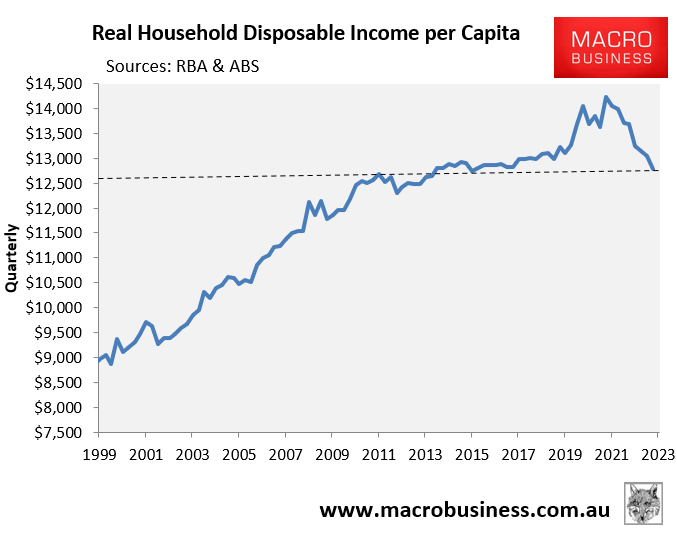
Australia’s unemployment rate is also expected to rise significantly in 2024 and could approach 5% by the end of the year, adding to the misery:
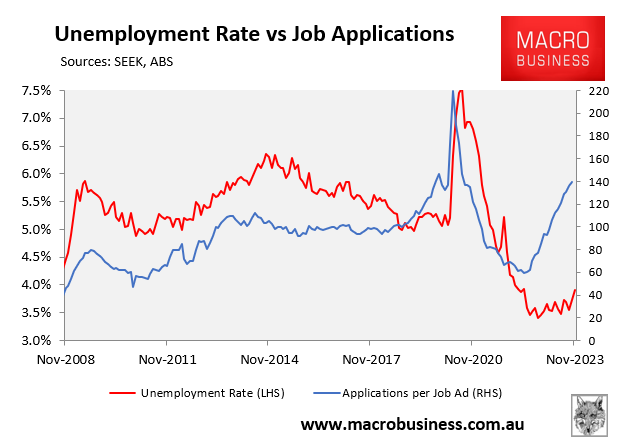
Consumer sentiment finished 2023 near recessionary levels, according to Westpac, and I don’t anticipate much improvement until the RBA begins an easing cycle late in the year.
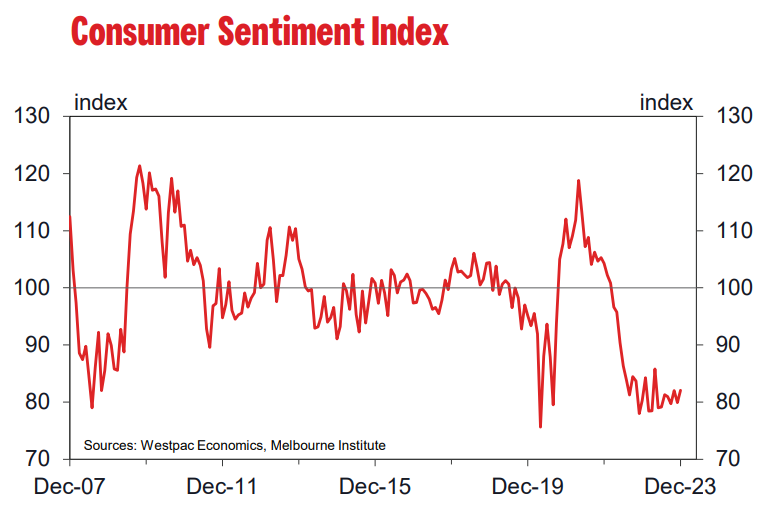
The 2020s are shaping up to be an even worse decade for Australians than the “lost decade” of the 2010s.

